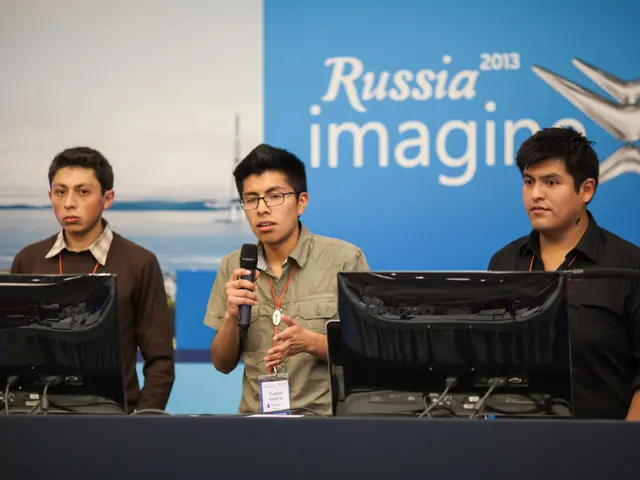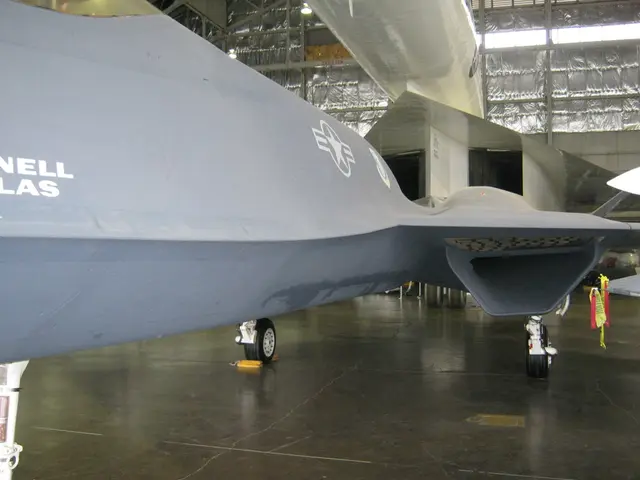Starlink poses a potential threat to the security of the White House.
Unveiling the Unseen: Fears and Realities of Starlink at the White House
It's been a talk of the town that the White House is using Elon Musk's Starlink system for their communication needs. Here's an inside scoop on how this system, installed back in February, raises questions about the data transmission and security.
In the heart of the nation's capital, the White House relies on the high-tech satellite network, Starlink, even though it has sparked debates about potential security risks among employees. Fearing unauthorized access and data exposure, these concerns were reported by The Washington Post, citing sources familiar with the matter.
When Doge, the government department, installed a Starlink terminal on the Eisenhower Executive Office Building's rooftop, they failed to notify the White House Communications Agency. Situated next to the White House, this building is part of the White House Complex. With the Communications Agency unable to monitor the connections made via this terminal, sensitive data might be leaving the complex without anybody's knowledge, and hackers could potentially gain access.
Despite these allegations, the Secret Service sees no security incident related to this matter. However, access to the Starlink Guest Wi-Fi is relatively straightforward: a simple password is required, while other systems demand names, passwords, and expiring access rights. This lack of stringent security measures is one of the issues at the heart of the matter.
Starlink data transmission arises some security concerns due to its unique characteristics. Using satellites orbiting the Earth to send data, the system is harder for hackers to intercept. Yet, its security is not absolute. With Starlink, devices could potentially bypass typical security protocols because it does not require traditional tracking or recording of data transmissions.
Democrats on the House Oversight Committee, a committee dedicated to oversight and accountability, have voiced their concerns about the potential risks to our country's national security. With sensitive data and information being exposed to hackers, adversaries, or those who wish to harm Americans, they question the wisdom of relying on unsecured communications systems.
While traditional communication networks might have stricter controls, the White House needs to maintain an open line for vital calls and emails. As a critical hub for international espionage activities, the communications within the White House are heavily monitored. However, the installation of the Starlink terminal has led to disputes between the Doge department and the intelligence agency regarding the security and management of such sensitive information.
Linke Muslimski's Starlink system might be in use by other agencies across the country, and reports suggest that Doge employees have been relying heavily on this system for communication. The lack of transparency and documentation about the data flow only amplifies the concerns, leaving experts with limited information to assess the security of the system.
Sources: ntv.de, the washington post
Insights: Starlink's satellite-based network offers advantages in terms of security, but its unique architecture can also potentially expose sensitive data and unauthorized access if not properly managed. The lack of transparency and stringent security measures has raised alarms among experts, who fear potential risks to the country's national security.
- The Commission, being aware of the draft directive on the protection of workers from the risks related to exposure to carcinogens, might also need to address the potential risks associated with the use of technology like Starlink in the White House, given the general-news reports about data transmission and security concerns.
- In the midst of concerns over Starlink's security and political debates, it is crucial for other agencies, akin to the White House, to implement strict technology policies and security measures to protect sensitive information and avoid potential risks related to exposure to carcinogens or any other threats.








